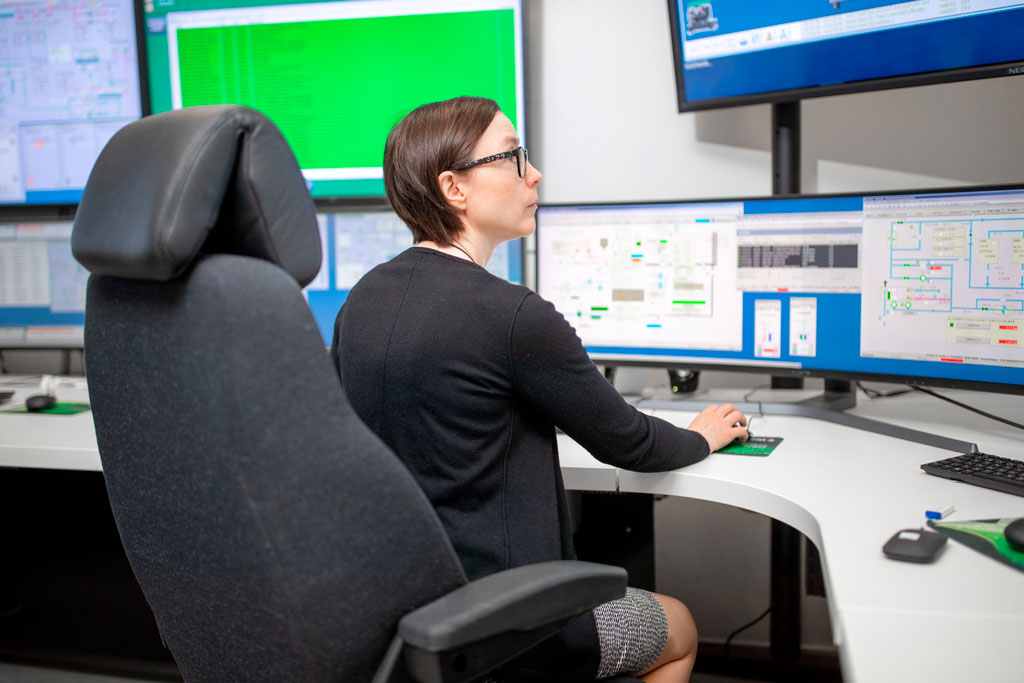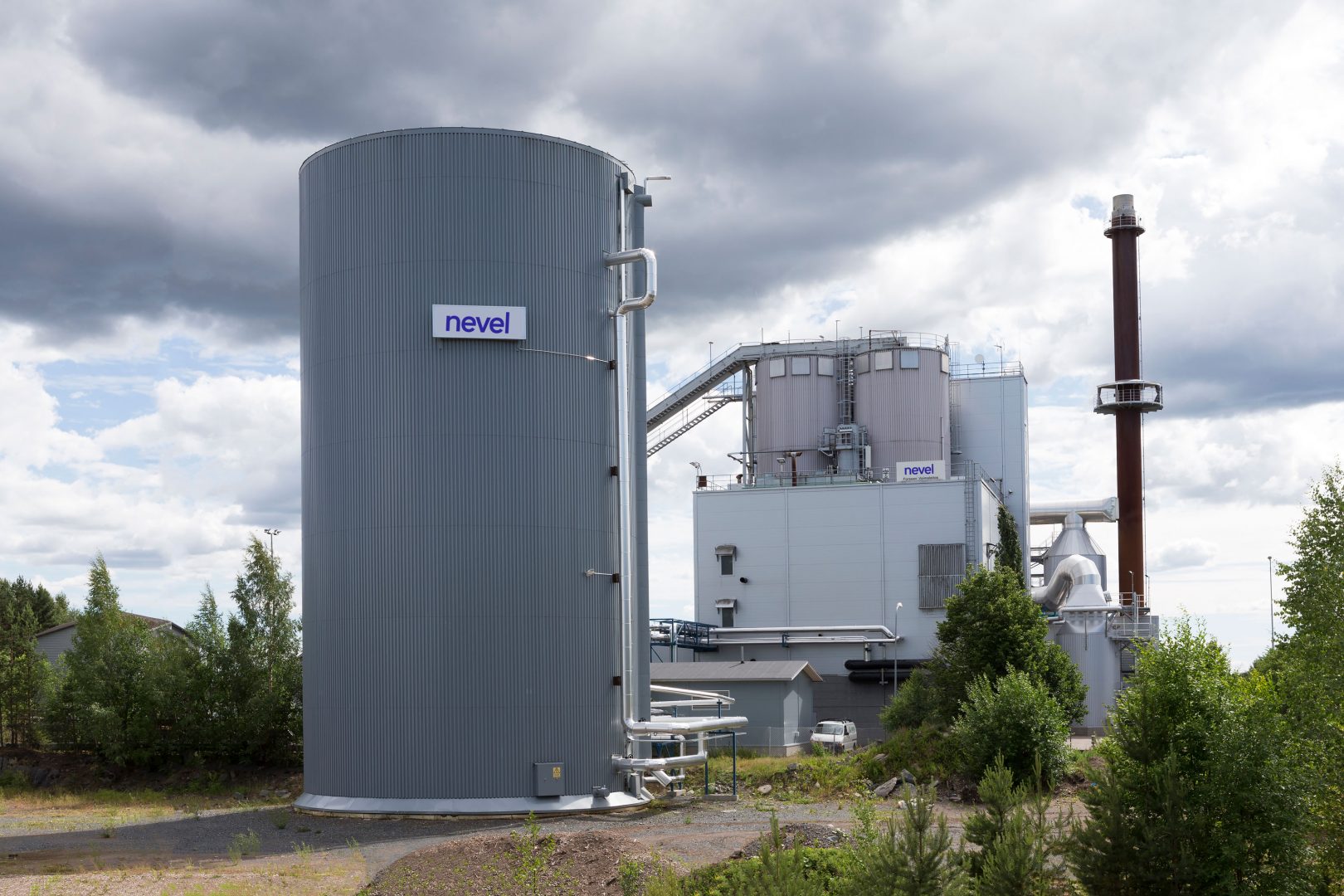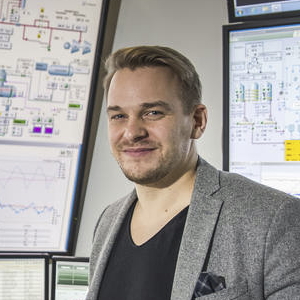Nevel's Forssa plant
Increased efficiency through fully digital operations
The Forssa energy production plant in Finland – one of over 130 such sites owned and operated by Nevel – generates 190 GWh of energy a year using solid bioenergy as its main fuel. In 2017 Nevel began a project to fully digitalise operations at the plant in order to optimise efficiency, reduce emissions, cut OPEX and increase the share of renewable fuel sources. Utilising the Nevel Remote operations and maintenance platform has enabled all these goals to be fully realised.
Reduced emissions with the electrification solution
Forssa plant’s new 14 MW electric boiler increases the flexibility of energy production and reduces overall emissions from production. Electric boilers can produce carbon-neutral heat and steam in a cost-effective manner and can be part of a hybrid system in combination with boilers powered by traditional fuels. This way, heat production can be optimised because electricity is used when the production cost is lower than the alternative combustion-based production form.
The electrification supports the flexible use of different energy sources and enables participation in the electricity reserve market. The electric boiler began operating in 2025 and will be used in place of the plant’s solid fuel boiler during the summer months and minimises the need to use the plant’s standby oil boiler, enabling CO2 emission reductions of around 1,200 tons.

An optimised combustion process
The first step in the process to fully digitalise the plant’s operations was to initiate remote monitoring. This gave improved access to data that went well beyond what is gained from a normal site visit and covers over 200 items, ranging from residual oxygen levels, and CO2 and NOx emissions to financial information. Analysing the site data has enabled Nevel to optimise the production process and make better informed decisions. The site is operated around the clock from Nevel’s remote operation centre, which uses machine learning to optimise the site operations. Employees at the site work during normal working hours and focus primarily on preventive maintenance work.
Improved boiler use and maintenance
The collected data now allows the boiler to be run at the most efficient temperature and minimised residual oxygen content. The data also gives valuable insight into the performance of the heat exchanger, enabling pre-emptive cleaning and better heat dissipation, meaning less energy is needed to produce the same amount of heat.
Sensor data is used to identify acute problems such as imminent component failures and abnormal readings. Machine learning methods analyse the data for correlations and dependencies that can further support maintenance planning. The resulting improvement in predictability reduces downtime and enables service intervals that accurately reflect the needs of the site.

"Energy production is being electrified, and the new electric boiler at Forssa is a good example of this. By utilising artificial intelligence and machine learning, we can optimise heat production in a fast cycle. The emission-free heat produced by the electric boiler can also be stored in a battery for later use."
Ilkka Koskinen
Director, Real estate solutions, Nevel
Optimal use of the accumulator
The plant’s accumulator is now run automatically based on daily energy price variations. Using the collected data, the accumulator is charged and discharged depending on the network’s needs, and its operation can be optimised to generate most benefit, for example charged when energy prices are lower and discharged when they are higher. The accumulator also enables even temperatures of district heating during any malfunctions or shutdowns.
Better production forecasting
By integrating information such as historic consumption data, the energy production process optimises energy use with, for example, fuel use, fuel mix and temperature. With production data from all sites being analysed centrally, each plant benefits from an enormous amount of data that is modelled with machine learning to enable features like automated transactions – selling at a predefined price – and highly accurate production forecasting, all of which helps plants to respond more quickly and flexibly to changes in the energy market.
The challenge
To optimise efficiency, reduce emissions and OPEX, and increase the share of renewable fuel sources at Nevel’s own plant.
The solution
The electrification solution and remote operation service with Nevel digital operation and maintenance platform.
The results
Reduced residual oxygen level, CO2 and NOx emissions, improved availability, and EUR 600,000 annual OPEX savings.
Let’s talk – we’ll be happy to tell you more!

Peter Bäckström
Director, Real Estate Business
+46 76 141 4416

Ville Koikkalainen
Director, Industrial business
+358 40 526 3638

Ülo Stokkeby
Industrial & Real Estate Business
Estonia
+372 514 5597
